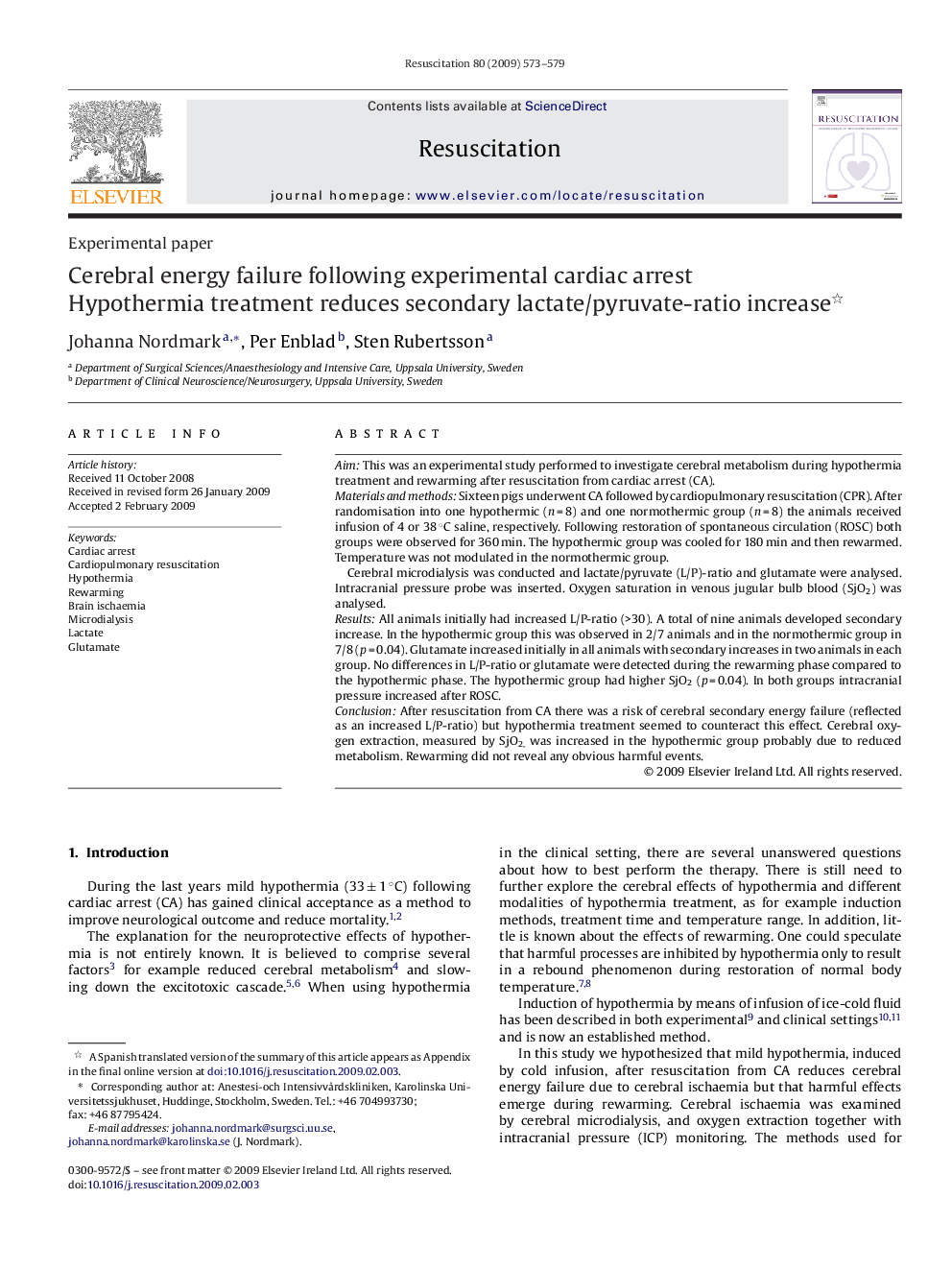| کد مقاله | کد نشریه | سال انتشار | مقاله انگلیسی | نسخه تمام متن |
|---|---|---|---|---|
| 3011188 | 1181555 | 2009 | 7 صفحه PDF | دانلود رایگان |

AimThis was an experimental study performed to investigate cerebral metabolism during hypothermia treatment and rewarming after resuscitation from cardiac arrest (CA).Materials and methodsSixteen pigs underwent CA followed by cardiopulmonary resuscitation (CPR). After randomisation into one hypothermic (n = 8) and one normothermic group (n = 8) the animals received infusion of 4 or 38 °C saline, respectively. Following restoration of spontaneous circulation (ROSC) both groups were observed for 360 min. The hypothermic group was cooled for 180 min and then rewarmed. Temperature was not modulated in the normothermic group.Cerebral microdialysis was conducted and lactate/pyruvate (L/P)-ratio and glutamate were analysed. Intracranial pressure probe was inserted. Oxygen saturation in venous jugular bulb blood (SjO2) was analysed.ResultsAll animals initially had increased L/P-ratio (>30). A total of nine animals developed secondary increase. In the hypothermic group this was observed in 2/7 animals and in the normothermic group in 7/8 (p = 0.04). Glutamate increased initially in all animals with secondary increases in two animals in each group. No differences in L/P-ratio or glutamate were detected during the rewarming phase compared to the hypothermic phase. The hypothermic group had higher SjO2 (p = 0.04). In both groups intracranial pressure increased after ROSC.ConclusionAfter resuscitation from CA there was a risk of cerebral secondary energy failure (reflected as an increased L/P-ratio) but hypothermia treatment seemed to counteract this effect. Cerebral oxygen extraction, measured by SjO2, was increased in the hypothermic group probably due to reduced metabolism. Rewarming did not reveal any obvious harmful events.
Journal: Resuscitation - Volume 80, Issue 5, May 2009, Pages 573–579